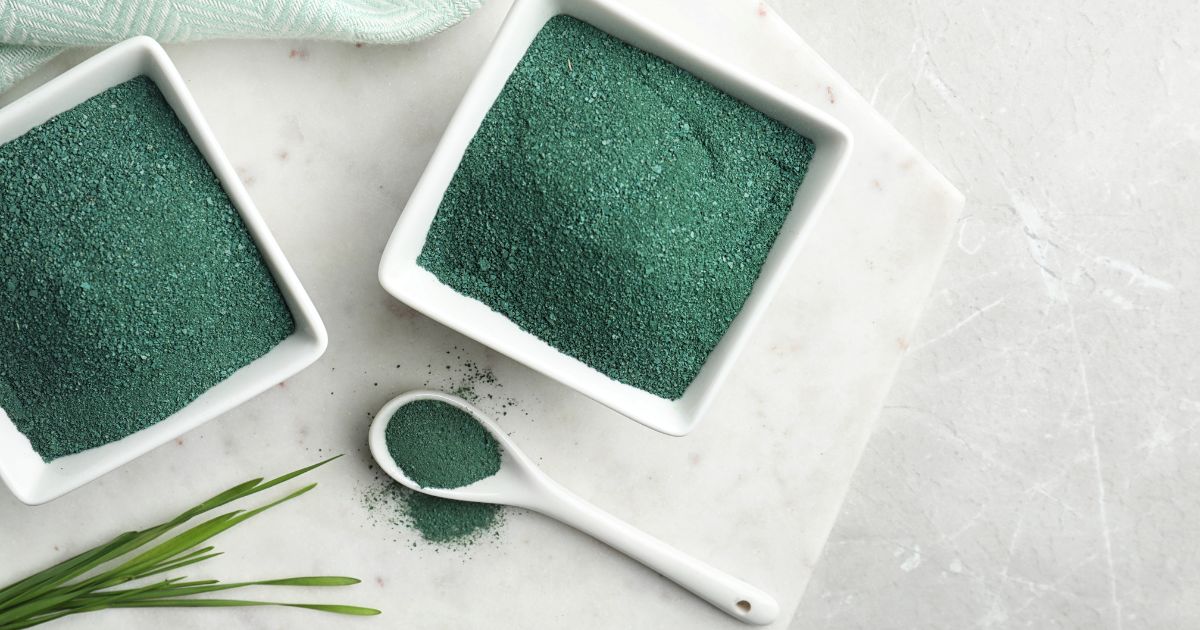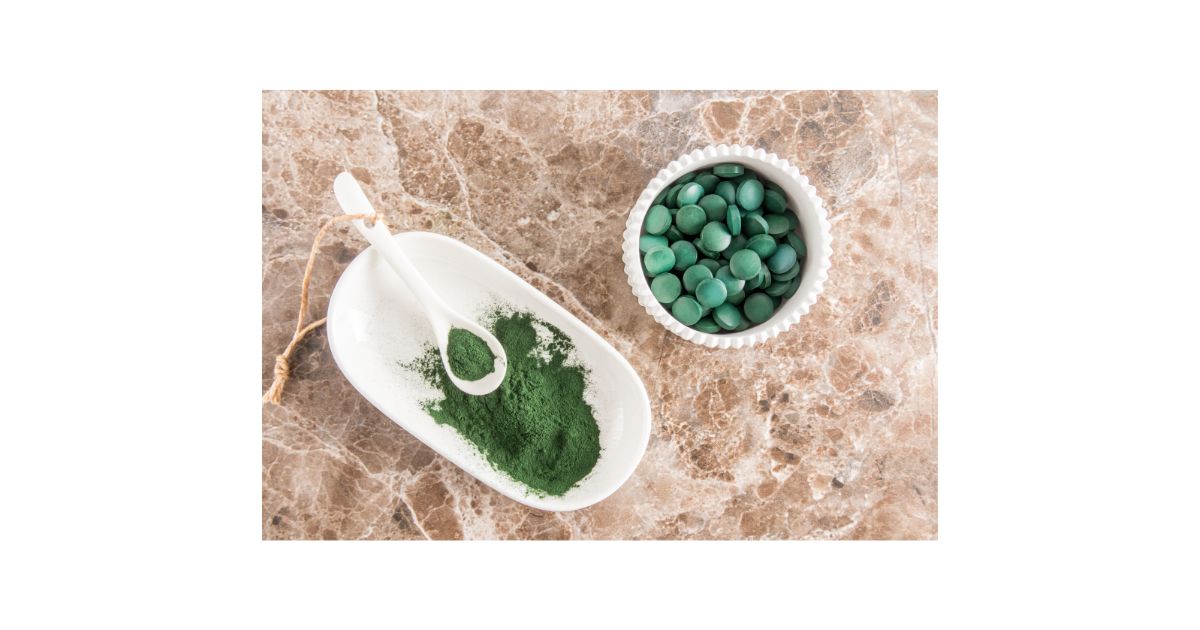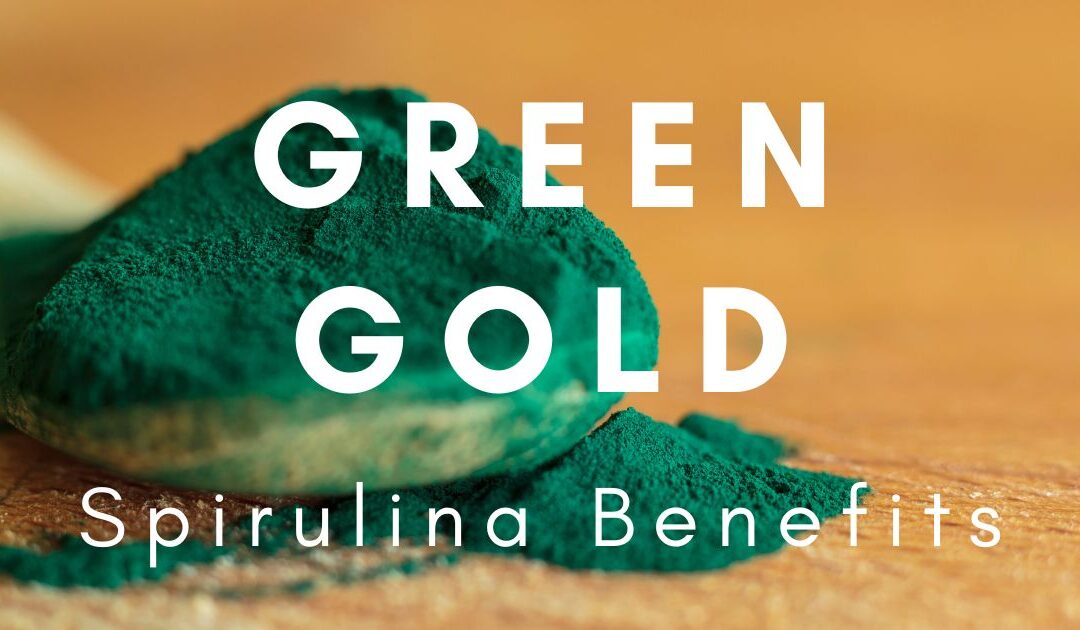Famed for its vibrant deep green hue, spirulina is often called a “superfood.” But, what’s so special about this microscopic, blue-green algae?
Spirulina’s usage can be traced back to ancient civilizations, as early as the 16th century Aztecs. Indigenous communities harvested and sun-dried spirulina, forming cakes that served as a valuable source of nutrition. Similarly, the Kanembu people in Chad have been using spirulina for centuries, harvesting it from Lake Chad and shaping it into small cakes called “dihe.”
Spirulina’s modern popularity really burst onto the scene in the 20th century when NASA decided to explore it as a potential food source for astronauts due to its exceptional nutritional content.
Today, spirulina’s use as a dietary supplement and health food has grown exponentially because of its remarkable potential health benefits.

Discovering The Superfood Secrets Of Spirulina
In recent years, scientific research has shed light on the advantages spirulina may offer to human health, making it a staple for many health-conscious individuals. With its rich array of essential nutrients, the benefits of spirulina are truly both diverse and intriguing.
Whether you’re seeking a natural dietary supplement or simply curious about the power of this ancient superfood, the potential benefits of spirulina are fascinating.
What’s Inside This Nutritional Powerhouse
Rich In Nutrients: A Dive Into Spirulina’s Composition
Spirulina is found in fresh and salt water, and though it’s small, it’s a mighty little nutritional powerhouse.
To start with, spirulina is chock-full of vitamins and minerals. Think calcium, niacin, potassium, magnesium, and more. And, let’s not forget those wonderful omega-6 and omega-3 essential fatty acids. Plus, it has around 11% of the RDI of iron and 4g of protein per tablespoon.1
To give you a better idea of spirulina’s potency, it has almost 20x the amount of protein of kale, and nearly 18x the amount of iron.2,3
Spirulina Unveiled: Understanding Its Value As A Superfood
The super nutrition doesn’t stop there. Spirulina contains a pigment called phycocyanin, which gives spirulina its deep blue-green hue. This pigment has such powerful antioxidant properties that studies have shown it may help to support healthy cholesterol levels already within a normal range, blood cell health, and even muscle endurance.4-6
Spirulina is also rich in phytonutrient carotenoids. In fact, spirulina specifically contains a high concentration of the carotenoid zeaxanthin – an important compound that’s been linked to eye health.7

Potential Health Benefits Of This Oceanic Algae
Spirulina boasts an impressive array of potential “superfood” health benefits that have piqued the interest of health enthusiasts and scientists alike. Here are some possible advantages of incorporating spirulina into your diet:
- Nutrient-Rich
Spirulina is incredibly dense in nutrients. It has a high content of protein (over 70 percent) with all the essential amino acids, making it an excellent choice for vegetarians and vegans. Moreover, it provides a wealth of essential vitamins (B-complex vitamins, vitamin K, vitamin C) and minerals (iron, magnesium, potassium), helping to fill potential nutritional gaps in your diet.8,9
- Antioxidant Properties
Spirulina is rich in several antioxidants which can help support your body’s natural defense against free radicals.This makes spirulina a potential ally for overall health and the aging process.10
- Immune System Support
The immune-boosting potential of spirulina is well-documented. Its high concentration of vitamins, minerals, and of course – antioxidants – contributes to a strong immune system support, helping to promote overall wellness.11
- Heart Health
Consuming spirulina may promote cardiovascular well-being by helping to promote healthy cholesterol levels already within a normal range. Clinical trials are ongoing, but the results so far are quite exciting.12
- Weight Management
Some studies suggest that spirulina may assist in weight management by promoting feelings of fullness and reducing appetite.13
Getting Beneath The Flavor Of Spirulina
Spirulina Algae Dietary Supplements
Spirulina tastes a little like if, say, kale met a dash of seawater– earthy, and slightly salty. But when mixed into a smoothie or dish, it easily merges with the flavors around it.
Spirulina is sold as a supplement in powder, tablet, or capsule form, making it simple to introduce it into your daily routine.
If you choose the powdered form, you can:
- Transform smoothies into a vibrant green delight.
- Stir a dash into creamy dressings.
- Watch rice dishes take on an intense, new color – with a big nutrient boost.
- Or, for a surprise twist, simply bake it into savory muffins or pancakes.
From salads, to pesto, to power bars, and beyond – the possibilities really are endless.

Spirulina, More Than Just Algae
Final Notes On The Green Gold Of The Ocean
Spirulina is undeniably more than just algae; it’s a nutritional powerhouse with a rich history and a promising future in promoting human health and well-being. This microscopic blue-green algae has transcended its humble origins to become a celebrated superfood.
From its dense nutrient profile encompassing essential vitamins, minerals, and proteins to its potent antioxidant properties, spirulina has proven its worth in modern nutrition. It not only provides a source of plant-based protein for vegetarians and vegans, but it also contributes to overall health and vitality.
Whether you’re seeking to up your daily nutrient intake or explore natural ways to support your health, spirulina is a real testament to the potential of nature’s offerings.
Sources
- https://www.healthline.com/nutrition/10-proven-benefits-of-spirulina
- https://fdc.nal.usda.gov/fdc-app.html#/food-details/323505/nutrients
- https://fdc.nal.usda.gov/fdc-app.html#/food-details/170495/nutrients
- http://www.internationaljournalofcaringsciences.org/docs/28_nurhayiati_original_13_3.pdf
- https://www.ncbi.nlm.nih.gov/pmc/articles/PMC8937016/
- https://pubmed.ncbi.nlm.nih.gov/27259333
- https://www.mountsinai.org/health-library/supplement/spirulina
- https://fdc.nal.usda.gov/fdc-app.html#/food-details/170495/nutrients
- https://www.ncbi.nlm.nih.gov/pmc/articles/PMC8779242
- https://www.ncbi.nlm.nih.gov/pmc/articles/PMC2954939/
- https://www.ncbi.nlm.nih.gov/pmc/articles/PMC3136577/
- https://www.ncbi.nlm.nih.gov/pmc/articles/PMC3136577/
- https://www.ncbi.nlm.nih.gov/pmc/articles/PMC5399840/

